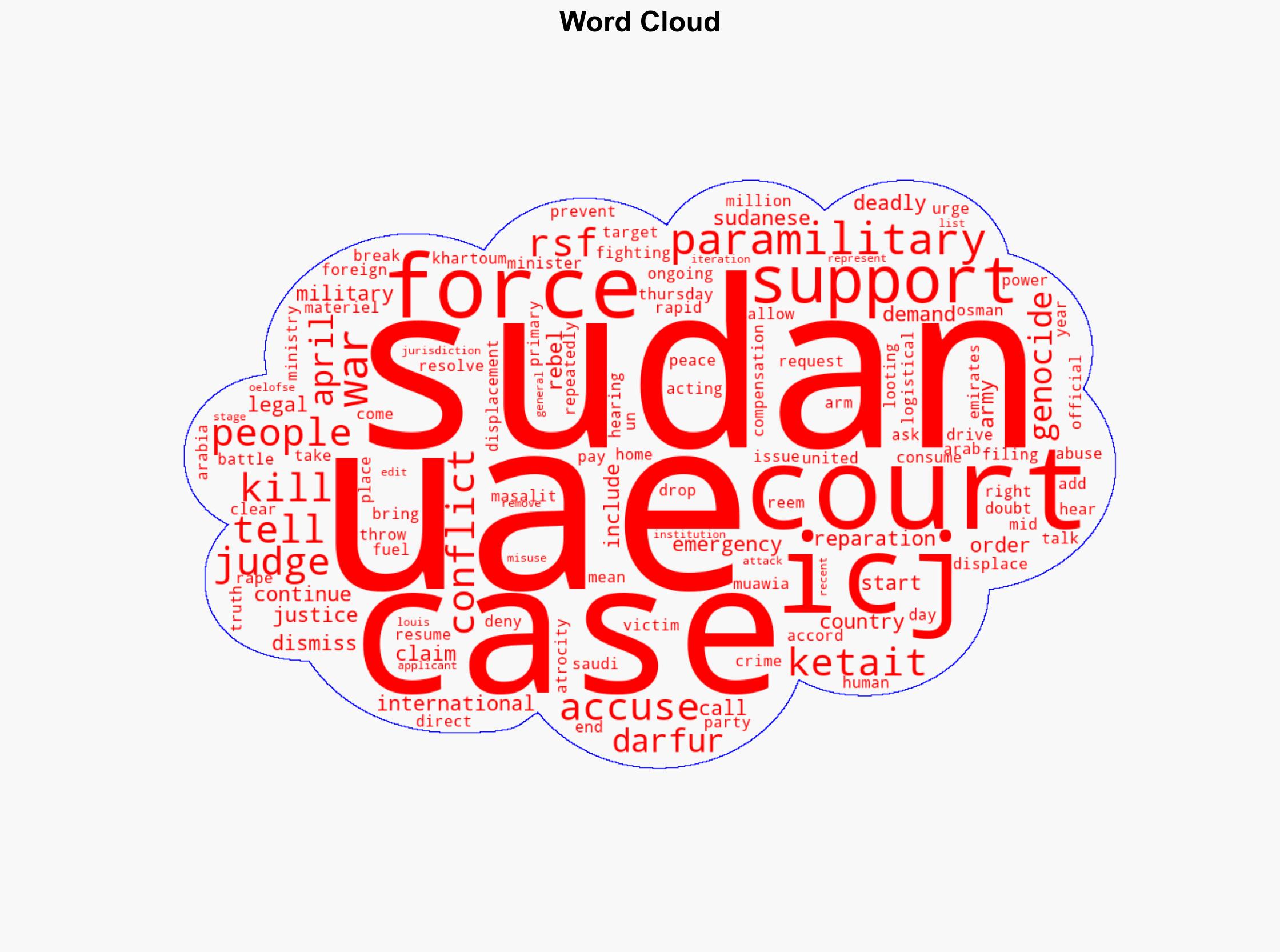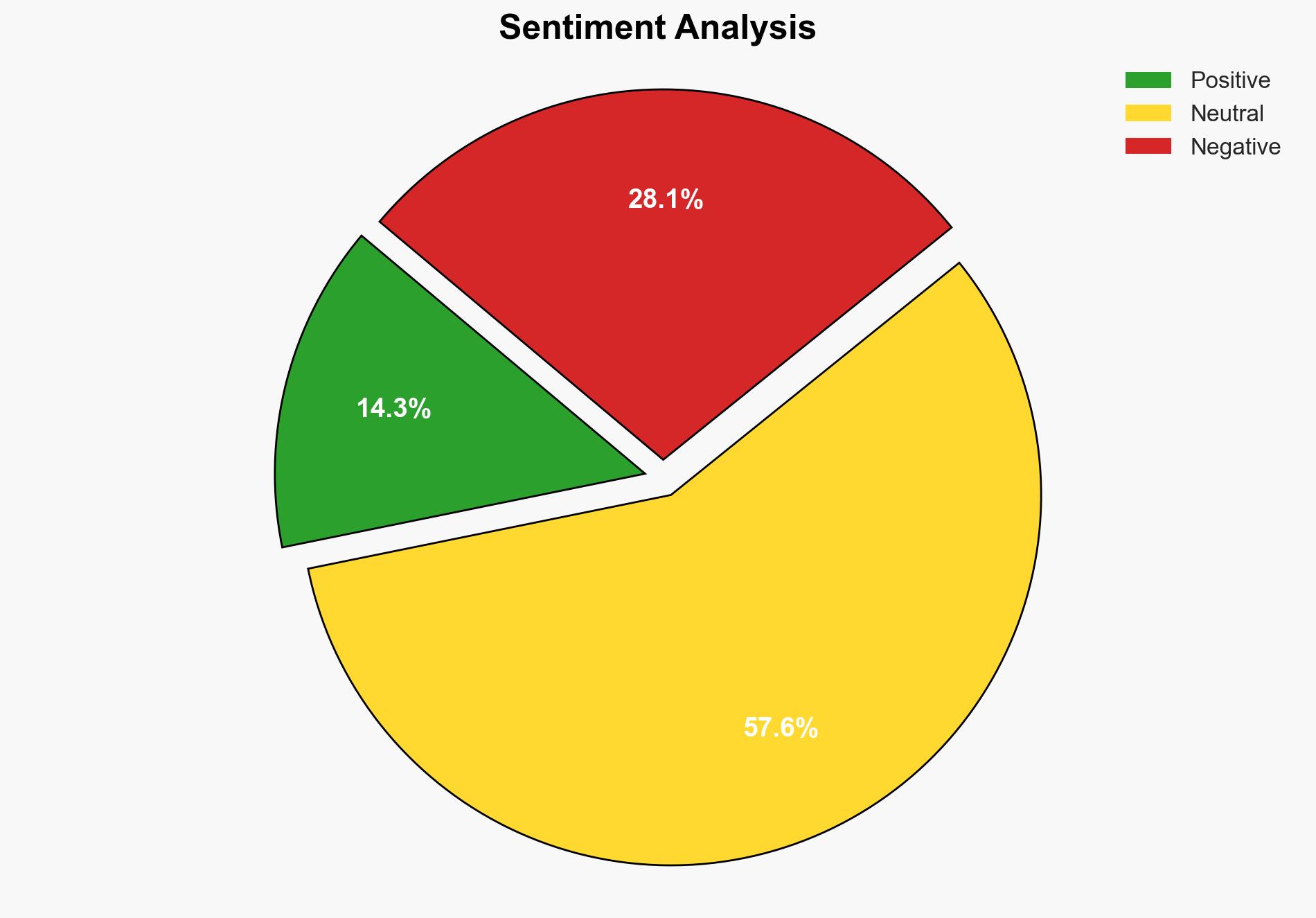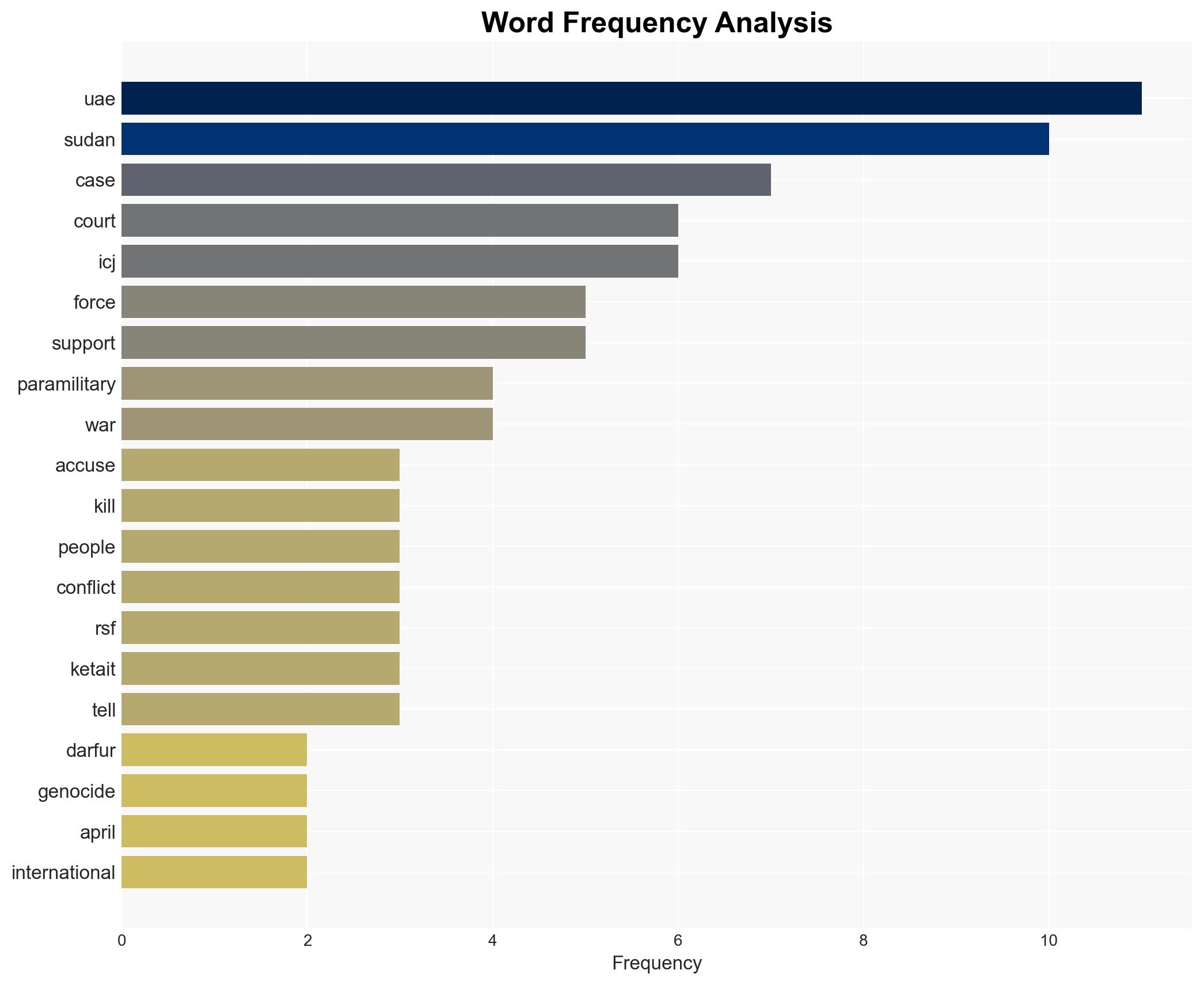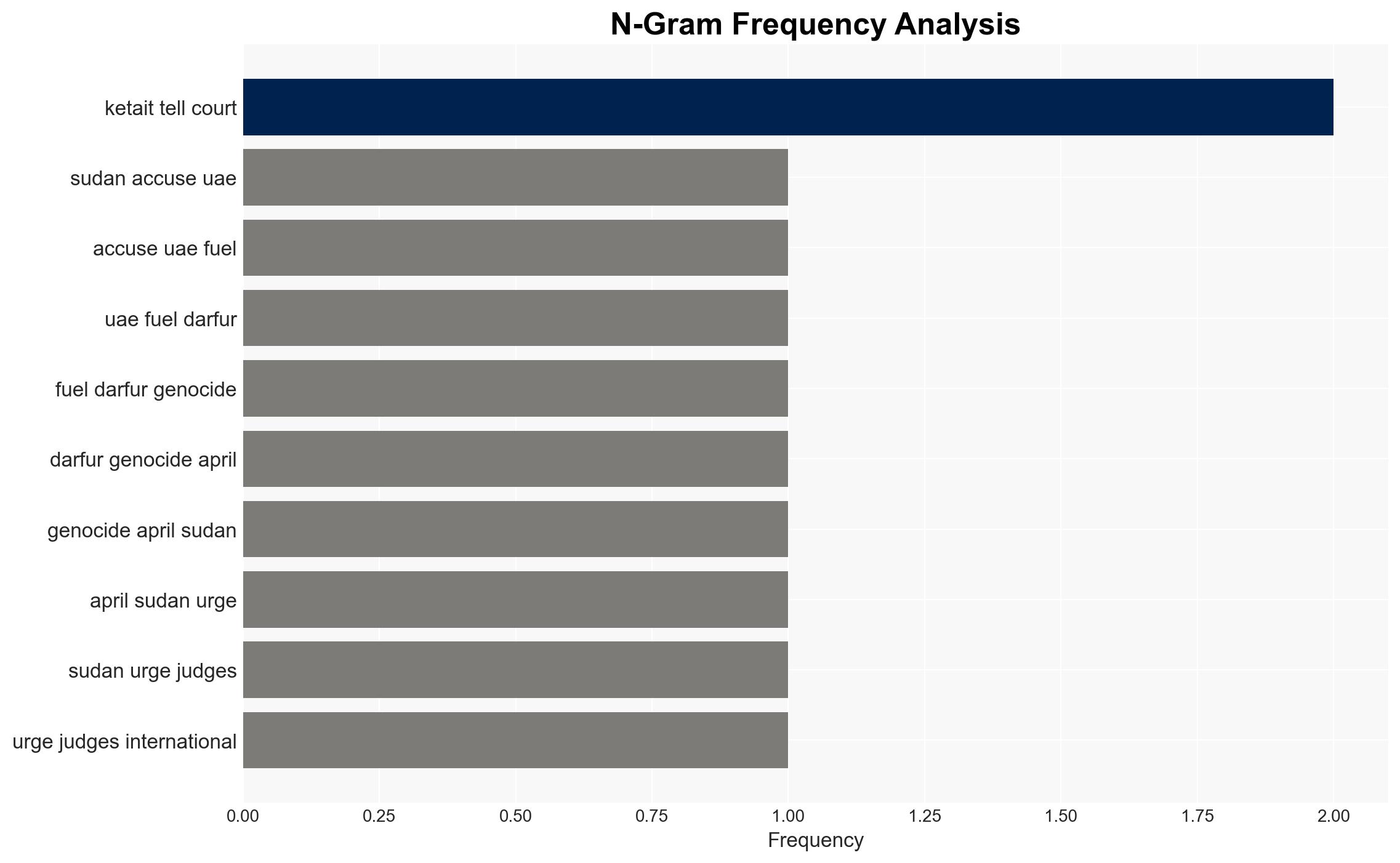Sudan accuses UAE of fueling Darfur ‘genocide’ – DW (English)
Published on: 2025-04-10
Intelligence Report: Sudan accuses UAE of fueling Darfur ‘genocide’ – DW (English)
1. BLUF (Bottom Line Up Front)
Sudan has formally accused the United Arab Emirates (UAE) of supporting paramilitary forces in Darfur, exacerbating the ongoing conflict and humanitarian crisis. Sudan has sought emergency intervention from the International Court of Justice (ICJ) to halt UAE’s alleged support, while the UAE denies these claims and challenges the ICJ’s jurisdiction. The conflict has resulted in significant casualties and displacement, with over 24,000 deaths and 14 million displaced. Immediate diplomatic engagement and legal scrutiny are recommended to address the allegations and mitigate further escalation.
2. Detailed Analysis
The following structured analytic techniques have been applied for this analysis:
General Analysis
Sudan’s legal action at the ICJ highlights the internationalization of the Darfur conflict, with allegations against the UAE for supporting the Rapid Support Forces (RSF). The conflict, originating in April 2023, has escalated with severe humanitarian consequences. Both the RSF and Sudanese military face accusations of human rights abuses. Sudan’s demand for reparations underscores the severity of the allegations. The UAE’s rebuttal and request to dismiss the case indicate a complex legal and diplomatic battle ahead. The involvement of international bodies like the ICJ and calls from the US and Saudi Arabia for peace talks reflect the global attention on this crisis.
3. Implications and Strategic Risks
The allegations against the UAE, if substantiated, could strain diplomatic relations and impact regional stability. The conflict poses significant risks to national security, with potential spillover effects into neighboring regions. Economic interests, particularly in terms of humanitarian aid and reconstruction, are at risk due to ongoing instability. The legal proceedings at the ICJ could set precedents for international accountability in conflicts, influencing future geopolitical dynamics.
4. Recommendations and Outlook
Recommendations:
- Encourage diplomatic dialogue between Sudan and the UAE to address allegations and seek peaceful resolution.
- Enhance monitoring and reporting mechanisms to verify claims of external support to conflict parties.
- Support humanitarian efforts to assist displaced populations and mitigate the humanitarian crisis.
Outlook:
Best-case scenario: Diplomatic engagement leads to a ceasefire and resumption of peace talks, reducing violence and stabilizing the region.
Worst-case scenario: Continued conflict and legal stalemate exacerbate humanitarian crises and regional instability.
Most likely outcome: Protracted legal and diplomatic negotiations with intermittent violence and ongoing humanitarian challenges.
5. Key Individuals and Entities
The report mentions significant individuals and organizations but does not provide any roles or affiliations. Key individuals include Muawia Osman and Reem Ketait. Key entities involved are the International Court of Justice, United Nations, and the governments of Sudan and the United Arab Emirates.




